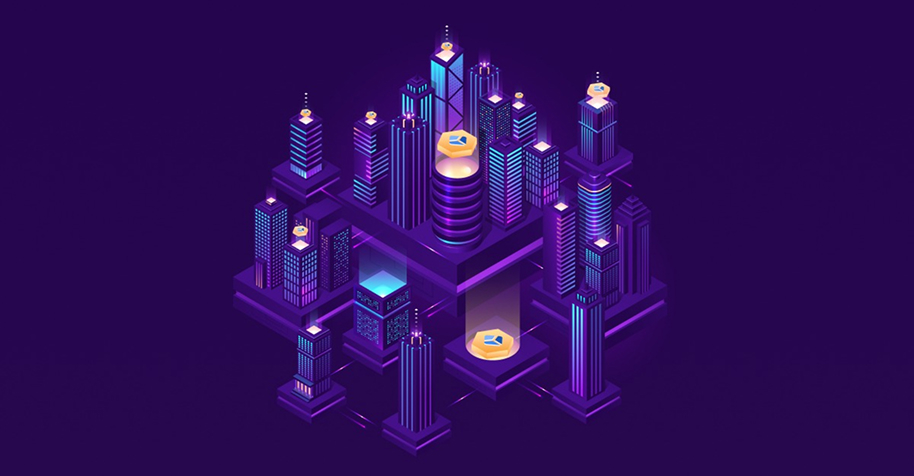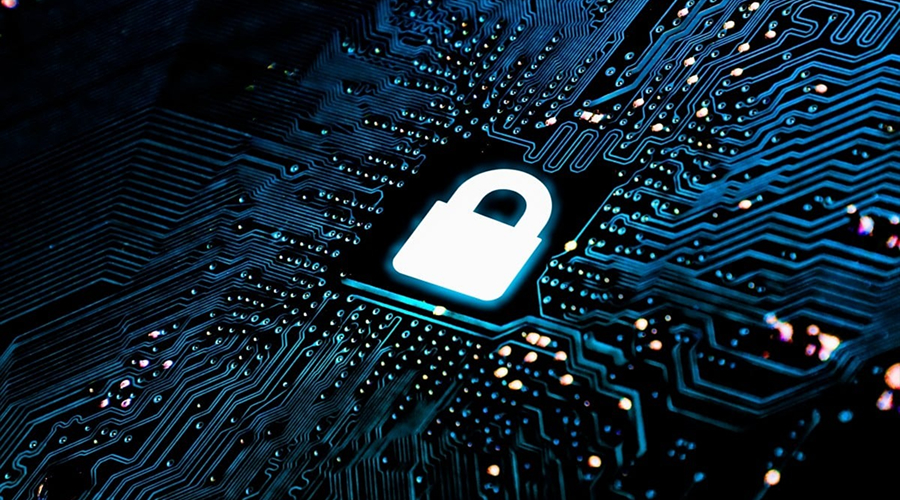
It is no surprise that real estate has proven to be a reliable investment vehicle for both homeowners and investors. An increasing number of individuals are investing in the real estate sector to get substantial returns on their investments. However, it cannot be denied that real estate requires paper-heavy processes and complex legal formalities. On top of that, it lacks transparency. Nonetheless, with a proper system, you can easily deal with finances, whether you wish to invest in a rental property or flip houses. Now you don’t have to rely on banks and other financial institutions to ensure smooth and seamless transactions. Modern real estate developers and investors are now relying heavily on advanced technology. And blockchain is one such advanced technology redefining the real estate sector every step of the way, with promising advantages. Using blockchain technology, real estate purchases can happen within a single day.
From tokenization of assets to smart contracts and decentralized data management, blockchain offers innovative ways to have secure real estate transactions, streamline operations, increase transparency, reduce fraud, and so much more. If you wish to know how blockchain is reshaping the real estate sector, then read this article. In this comprehensive guide, we’ll explore how blockchain is reshaping the future of real estate and what it means for buyers, sellers, investors, developers, and governments. So, without any further ado, let’s get started…
What Is Blockchain, and Why Is It Important For Real Estate?
At its core, blockchain is a distributed ledger technology (DLT). It records transactions across multiple computers. All the transactions recorded by distributed ledger technology are secure, tamper-proof, and transparent. Yes, this technology is known to keep all transactions safe from prying eyes. Each transaction is recorded in a “block,” and these blocks are linked together in chronological order, forming a “chain,” thus the name blockchain.
Unlike traditional centralized databases controlled by a single entity, blockchain is decentralized. This means that no single party can have full control. This decentralized system ensures transparency and security in real estate transactions and data among distributed databases. Real estate is one such sector that involves multiple stakeholders, such as buyers, sellers, agents, lawyers, banks, and government agencies in a single transaction.
By offering transparency, immutability, automation through smart contracts, and trustless verification, blockchain effectively tackles numerous challenges that have affected the real estate industry for many years. It was initially developed to support digital currencies like Bitcoin. But in recent years, this technology has evolved significantly. It has become a powerful tool, and it can now be used in various industries, such as real estate. Partnering with a reliable software development company can further help businesses integrate blockchain seamlessly into real estate processes. Integrating blockchain technology in the real estate sector can help stakeholders in numerous ways, such as:
- Automate processes
- Transparent transactions
- Secure data
- Enhance trust among sellers and buyers
- Data privacy and integrity
And so on….
How Is Blockchain Technology Used in the Real Estate Sector?
Blockchain is an important technology today, especially in the real estate sector. It is used in the real estate sector to streamline and secure various aspects of property transactions and management. Among several applications, one of its key applications is smart contracts. Smart Contracts make things really simple for all the stakeholders. They simply automate agreements between buyers, sellers, and agents and allow for automated payment and safe data transfer. This ensures faster, transparent, and error-free transactions. Aside from that, it ensures secure transactions, preventing the risk of fraud while selling or buying a property.
Also, it enables tokenization of assets. Tokenization of assets allows properties to be divided into digital tokens for fractional ownership and easier trading. Tokenization is even beneficial for small investors. Small investors can buy small shares of the property without any hassle. Additionally, it enhances title and deed management by creating tamper-proof, immutable records that reduce the risk of fraud. Many real estate platforms are now using blockchain technology for identity verification, rental agreements, and tracking maintenance records. This, in turn, offers a more efficient and trustworthy ecosystem for all stakeholders involved.
Also Read: What is Blockchain Technology and How Does it Work?
What’s the best part?
The integrated blockchain technology has simplified real estate purchases more than before. This even includes the automation of the rent collection procedure. Yes, blockchain automates the rent collection as well as the maintenance process, allowing you to focus on other crucial aspects. Overall, it encourages transparency, efficiency, and security in real estate transactions. Read the next section to know how this technology is redefining the future of the real estate sector. Here we go…
How Is Blockchain Reshaping the Real Estate Sector?
Here is how blockchain is reshaping the real estate sector; take a look for greater insights…
1. Enhanced Transparency and Security

Real estate is one of the sectors that is known for lacking transparency. This is specifically true in markets with weak legal frameworks or underdeveloped title systems. However, with this new technology, the issue of transparency is curbed well. Blockchain offers a secure and verifiable record of all transactions. The blockchain technology gives you the advantage of a tamper-proof ledger, providing a reliable record of ownership. With its integration, the risk of property title disputes and fraudulent activities is minimized. Additionally, it automates identity verification promptly. Furthermore, its usage helps users do automated accounting, generating accurate and fast financial reporting, and preventing issues like:
- Fake ownership claims
- Double selling of the same property
- Forged documents
By storing immutable records on the blockchain, all the stakeholders can access verified and time-stamped information. This significantly reduces the risk of fraud and misrepresentation. Countries like Sweden and Georgia have already started using blockchain technology to record property ownership.
2. Increased Efficiency at Lower Cost
Delays and ineffectiveness are additional challenges associated with traditional methods in the real estate sector. It’s a no-brainer that real estate transactions are time-consuming endeavours. Also, the cost involved in the paperwork or documentations further add to the pain. But not now! Blockchain eliminates all these issues to a great extent. If you choose transactions integrated with blockchain technology, you will find the complete process hassle-free.
With blockchain technology, you can avail of a transparent ledger system that eliminates the need for intermediaries’ intervention. This way, it saves time and reduces the transaction fees involved with the blockchain implementation and prevents issues like:
- Delays
- Expensive documentation
- Ineffectiveness
Additionally, smart contracts enable you to transfer the property, along with the rent collection, in no time. Countries like Croatia, Sweden, Australia, and Dubai are already using this technology to enhance efficiency in real estate sector. The United States and Georgia are using blockchain for land registry modernization to reduce fraud, expedite transactions, and create more transparent and secure property records.
3. Tokenization and Financing

Tokenization is one of the most disruptive applications of blockchain. It involves converting real-world assets, such as houses, apartments, commercial buildings, etc., into digital tokens. These tokens symbolize the fractional ownership, attracting global real estate investors and they can further be traded on blockchain platforms. This means that investors can buy fractions of a property. This makes real estate investment more accessible to the average person. Selling a property is no easy task traditionally. But with tokenization, it all becomes a breeze. Unlike traditional real estate, which is illiquid and hard to sell, tokenization allows assets to be traded on blockchain platforms.
Also, this allows global investors to participate in property investments without geographical or financial barriers. Furthermore, the advanced technology not only expedites financial processes but also verifies documents, credit checks, funds, etc. The best part of tokenized real estate is that tokenization allows people to get started with even a small amount. Yes, you read that right. You don’t need to invest millions to have a stake in a property. This is because it has lower entry barriers. This is very much similar to stock marketing, where you buy shares of a company and can buy, sell or trade whenever you wish. Similarly, you can use tokens to buy, sell or trade in secondary markets.
4. Smart Contracts for Automated Transactions
Smart contracts are yet another popular application of blockchain in real estate. Smart contracts are nothing but self-executing agreements. Unlike traditional real estate documents and agreements, terms are written directly into codes in these self-executing agreements. These agreements also include certain predefined conditions. The moment they are met, the contract automatically executes actions without needing intermediaries.
In the real estate sector, smart contracts can be very helpful. As said earlier, the real estate sector involves paper-heavy processes, which are tough to handle at times. Smart contracts eliminate the issue significantly, and help automate purchase agreements and lease contracts, trigger payments when conditions are fulfilled, manage escrow without banks or notaries and streamline property transfers and title registration.
And the ultimate benefits of all this are reduced cost, faster and dispute-free transactions. Yes, smart contracts eliminate the need for lawyers, brokers, and other middlemen. This expedites the process and code-driven contracts leave less room for ambiguity or human error. The best thing about a smart contract is that it automatically transfers ownership of a property to a buyer once full payment is confirmed on the blockchain.
5. Ensures Global Transactions

We all know that traditional real estate is limited to boundaries. This means that ownership cannot be transferred to a person until the person is from the same place or is physically available. But blockchain eliminates this condition. With blockchain even average buyers or the ones with limited funds can invest in a property. Blockchain technology everything in real estate and allows buyers or sellers to make transactions worldwide.
Regardless of geographical boundaries, blockchain solutions ensure streamlined property transactions from start to finish, reducing the money transfer fee. With its seamless integration, international investors can easily buy or sell the property. Additionally, it ensures the completion of bigger projects within a specific timeframe and with ease.
6. Simplifies Property Management
Property management has always been a task since ancient times. It has never been easier to manage a property. And if you live somewhere else and have your property in some other location without anyone looking after it, it triggers disputes after some time. Aside from that, managing rental properties is yet another task. Of course, it involves a lot of effort, such as screening of tenant, creating rent agreements, and so on. The use of blockchain technology in real estate enables property owners to automate processes, save time and have enhanced satisfaction.
Integrating blockchain in real estate allows you to collect rent, do the tenant screening, and complete other processes in no time. Aside from that, it allows you to get real-time data about the property. So, all in all, using this cutting-edge technology can make property dealings a breeze for all.
Aside from being useful in transactions, this innovative technology can also help property owners track maintenance records, lease agreements, tenant history, utility usage, payments and violations, and so on. Blockchain with Internet of Things (IoT) can turn out to be the smartest solution in the real estate sector. It can help property owners to have an up-to-date record of property conditions, like electricity usage, repair requests, and so on.
When combined with other innovations like Blockchain In Mobile App Security, the technology proves even more powerful, ensuring transparency, security, and reliability across platforms. Blockchain with Internet of Things (IoT) can turn out to be the smartest solution in the real estate sector. It can help property owners to have an up-to-date record of property conditions, like electricity usage, repair requests, and so on.
➢ Decentralized Listing
Blockchain technology also allows for decentralized listing. Now what is it exactly? Unlike traditional real estate where property listing websites are controlled by central authorities and are often afflicted by outdated or inaccurate listings, blockchain supports decentralized listing platforms. These platforms allow users to have verified listings. These listings are verified via consensus or smart contracts. Aside from that, it allows all stakeholders to have access to the same data in real-time and agents, sellers, and buyers can interact directly without intermediaries. These platforms encourage precise listings by offering token rewards and foster trust by providing transparent records of property transactions.
➢ Simplified Due Diligence and KYC

Last but not least is simplified due diligence and KYC. Traditional real estate’ regulations are tough to follow. Moreover, they slow down the process. Undoubtedly, KYC (Know Your Customer) and AML (Anti-Money Laundering) are crucial and cannot be ignored. Blockchain turns out to be useful here. It simplifies everything for all stakeholders by storing verified identities and documents on-chain, allowing secure sharing of KYC data across platforms and preventing duplication of effort with reusable credentials. So, once a buyer’s identity is verified on one platform, it can be reused on others through secure blockchain credentials. This means you don’t have to repeat the process with every new transaction. This significantly accelerates the buying process.
Let’s now take a look at the most popular blockchain solutions in real estate in 2025 and beyond. Here we go…
Also Read: Identity Management: Leveraging Blockchain for Secure Authentication in Enterprises
Popular Blockchain Solutions in Real Estate 2025
So far, we have discussed the applications of blockchain in real estate and now we will discuss how blockchain solutions are transforming the real estate sector. Check out these pointers to make a well-informed decision:
1. Financing Real Estate Transactions
Is your real estate project bigger in size? Undoubtedly, the traditional loan process is going to be a time-consuming and complicated task. However, the integration of blockchain technology can streamline the same long process by minimising paperwork and automating repetitive tasks. For instance, the tokenisation, which represents the fractional ownership of the property, opens the doors for new investors. You can easily sell it in the financial market to earn a profit or buy another property.
2. Asset Management
Now managing assets has become a breeze with blockchain. Using blockchain technology, both buyers and sellers can access secure, transparent records of all assets. The best part is that these records cannot be tampered with unless all involved are. This way, it fosters confidence and trust in the entire procedure. Additionally, it allows tracing of an asset’s entire life cycle, providing valuable insight to the concerned authorities.
3. Property Management
With blockchain, you don’t have to worry about the management of your property. It streamlines the process for all stakeholders. Without a doubt, blockchain technology has simplified property management. It facilitates safe and secure data sharing between landlords, tenants, and property managers.
There are many real estate companies which have opted for blockchain technology to simplify their rent collection. Aside from that, they use this technology to verify the tenant’s background and other details. Now, they take the assistance of smart contracts to automate tasks like lease renewals and security deposit funds. This improves efficiency by reducing the risk of human errors and allows them to save a lot of time and effort.
4. Land and Property Registries
It’s now time to bid adieu to traditional land and property registry methods. Blockchain technology streamlines the process of exchanging and storing documents for land and property registration. It allows all stakeholders to see the same information in real time. With the stored database, buyers or sellers can easily verify property records using digital titles and deeds. Furthermore, the technology streamlines the entire process, saving time and energy.
5. Construction Development
The construction sector has always been unorganized for a very long time now. A complex real estate project can be very taxing and challenging. This is because it demands a lot of management that includes subcontractors. Now more and more real estate developers are using blockchain technology in construction development. They have now understood the value of better management of the project and how it can impact the overall workflows.
A reliable Blockchain Platform allows developers to access smart contracts that not only automate agreements but also ensure compliance with legal regulations. With its integration, real estate companies can also track the status of construction materials and know the project’s progress.
Undoubtedly, blockchain is a cutting-edge technology and it can impact the real estate sector positively. But there are certain challenges associated to this technology. Knowing these challenges is essential prior to make any decision. So, read this section to know the challenges that come along with blockchain technology. Here we go…
Also Read: How Long Does It Take to Create a Real Estate App
Challenges of Integrating Blockchain Technology in the Real Estate
The blockchain technology has changed the entire process, from fast online transactions to zero paperwork complexities. Despite this, it faces a set of challenges that create a hurdle in its widespread adoption. Check out the pointers below to learn the difficulties that come with the integration of blockchain technology in the real estate sector:
1. Regulatory and Legal Uncertainties
Real estate transactions are not seamless to get approvals. They have to undergo complex legal frameworks that vary across different regions. Integrating blockchain technology in the real estate sector requires compliance with legal frameworks. Simply put, the user needs to gather smart property records, tokens, and digital papers.
2. High Transition Costs
It is worth noting that integrating blockchain technology involves cost (huge cost in fact). For those who are shifting from the traditional paper-based system to blockchain technology, it is more expensive than you think. This is because migrating decades of the property’s history records to the blockchain technology is a daunting task.
3. Security Concerns
Sensitive personal and financial databases should be protected in the real estate industry. Therefore, security is always a crucial concern. Blockchain cryptographic principles do not eliminate the vulnerabilities of malware attacks in smart contracts. Its algorithms only prevent double-spending and fraud.
4. Resistance to New Technology Adoption
Real estate and its investors like to follow the traditional approach and resist change. For them, switching to new technologies is a slow and challenging process. They still believe in third-party intermediaries or brokers who ask for their commission from them.
5. Technical Barriers
There are technical barriers too. Obviously, implementing blockchain systems requires technical expertise and infrastructure. Many real estate agencies and government organizations are still not ready for it or we can say they lack technical expertise required for implementing blockchain systems.
6. Market Readiness
This technology is used in only a few developed markets, such as the USA, Georgia, the UAE, and so on. Other countries are still pondering about the usage of this technology in real estate. This simply suggests that buyers, sellers, and investors will need to spend time learning how blockchain works. Moreover, adoption requires building trust and user-friendly interfaces.
7. Scalability and Speed
There are scalability issues as well. Public blockchains like Ethereum have limited transaction throughput. Solutions like Layer 2 protocols or private blockchains are being developed to overcome this.
8. Cybersecurity Concerns
Finally, blockchain technology may present cybersecurity challenges. While blockchain itself is secure, associated applications, wallets, and smart contracts can be vulnerable to hacks or bugs.
Want to know what will be the future of blockchain technology in real estate? Read ahead to know…
Also Read: DeFi Development Company for Blockchain Technology in 2025
Future of Blockchain Technology in the Real Estate Sector
Despite implementing major changes, there are many things that will be transformed by blockchain technology in the real estate sector. Let’s understand what to expect in the next years through the following pointers. Here we go…
- Standard Global Platform: There will be a universal global platform that will help worldwide investors buy and sell properties in a seamless manner.
- Peer-to-Peer Platform: In the upcoming years, the role of intermediaries or brokers will come to an end. Buyers and sellers will do online transactions securely with reduced transaction fees.
- Blockchain Currencies: Standard blockchain currencies will take the place of the traditional payment system in the real estate market.
- AI+ Blockchain: Smarter investors will start using blockchain technology, together with artificial intelligence, in the real estate sector for faster and more reliable processes.
The Bottom Line
So, this is all about blockchain in real estate. Hopefully, this article has been informative for you and helped you understand how this cutting-edge technology is reshaping the future of real estate. Blockchain is not just another catchword. It is a force that is going to redefine the entire real estate industry. It paves the way for faster transactions, reduced costs, and broader investment opportunities by introducing transparency, trust, automation, and accessibility into an industry long affected by inefficiencies and opacity.
With smart contracts, tamper-proof records, and other promising benefits, blockchain technology has disrupted the real estate sector. It has brought transparency and security in transactions and exchanging databases, which is lacking in the conventional method. However, it is vital to address difficulties that come with its integration with the real estate sector. This way, you will gain the advantage of the advanced solutions in a smooth and seamless manner. So, use top-tier blockchain solutions in your real estate business. Embrace technology, bring change… 😊 😊
Thanks for reading!






